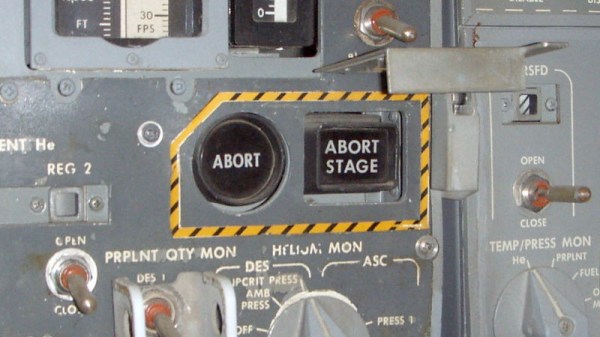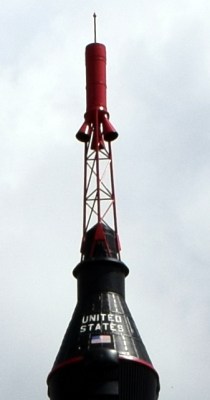The Apollo missions still inspire people today, decades after they took place. A fortunate side effect of the global public relations campaign is that a lot of information is publicly available for us to review and process. We’re right around the 49th anniversary of Apollo 14 mission, so it was a good time for [Frank O’Brien] to take readers through Apollo Guidance Computer and the hack that saved Apollo 14 (while it was in lunar orbit).
Space fans would already know many parts of this piece, but [Frank] weaves it together into a single narrative around a problematic “Abort” button that was found to be making intermittent contact as the crew were preparing to land on the moon. An inconvenient timing would have unnecessarily aborted the mission, which was obviously Not Good. [Frank] brings us up to speed on AGC fundamentals, just enough to understand the technical constraints for the hack, devised within the time constraints they faced.
For those that prefer a short video summary [Scott Manley] covered this same hack on YouTube. And for another perspective on the scope of this task, remember this was years before we had vi or emacs. When they were contemplating flipping status bits as programs were running, it’s not trivial to do a global search for code that might examine those bits. Look at the tome of source code AGC programmer [Don Eyles] worked with. Space fans who want to learn more can check out [Don]’s book.
For the ultimate AGC talk, check out The Ultimate AGC Talk.
Maybe someday trips to the moon will be a commonplace thing, but Apollo will always be the pioneer.



 This might seem like an odd way to spend $62 million, but for SpaceX, it’s worth it to know that the Crew Dragon Launch Abort System (LES) will work under actual flight conditions. The LES has already been successfully tested once, but that was on the ground and from a standstill. It allowed engineers to see how the system would behave should an abort occur while the rocket was still on the pad,
This might seem like an odd way to spend $62 million, but for SpaceX, it’s worth it to know that the Crew Dragon Launch Abort System (LES) will work under actual flight conditions. The LES has already been successfully tested once, but that was on the ground and from a standstill. It allowed engineers to see how the system would behave should an abort occur while the rocket was still on the pad, 











